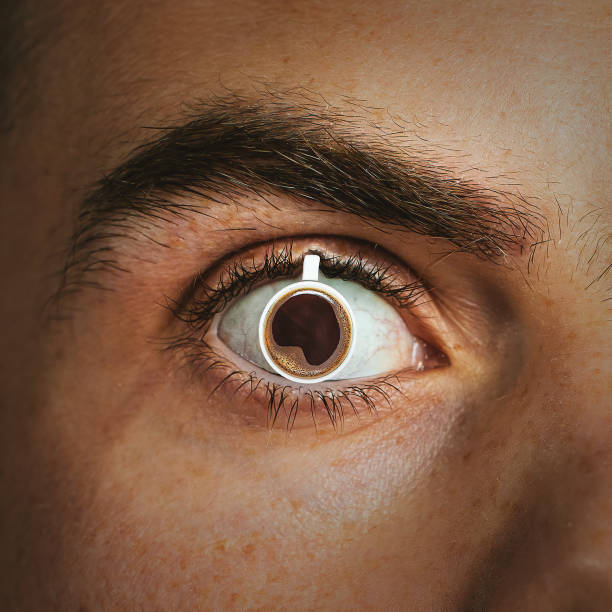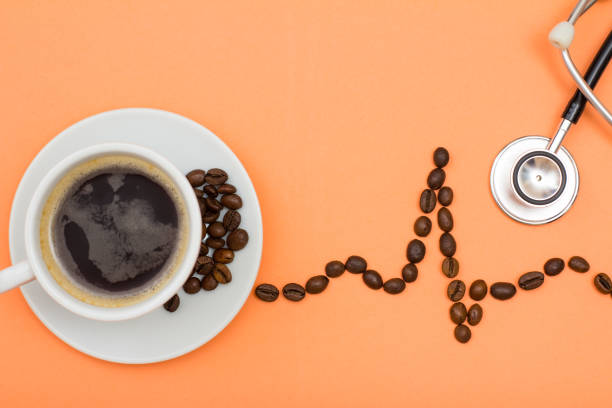Did you know that the average American consumes about 3 cups of coffee per day? If you're one of them, you're not alone in seeking that comforting aroma and energizing kick to start your day. Drinking coffee is more than just a beverage; it's a daily routine, a moment of respite, and for some, practically a food group.

So why do people drink coffee? Is it the caffeine buzz, the social experience, or something more? In this article, we'll delve into the various reasons people drink coffee, a universal love transcending borders and cultures.
Coffee's Cultural Journey

The journey of coffee began in the verdant coffee forests of Ethiopia. Legend has it that a goat herder named Kaldi discovered the invigorating properties of coffee beans.
This Ethiopian discovery soon reached the Arabian Peninsula, where Yemen became the epicenter of coffee cultivation by the 15th century. Coffee houses, known as 'qahveh khaneh,' sprouted, serving as hubs for social, intellectual, and political discourse.
As coffee reached Europe in the 17th century, it fostered vibrant discussions and entrepreneurial spirit in newly established coffee shops. Today, every corner of the world has its unique ode to this cherished drink, showcasing the deep cultural resonance of coffee.
Coffee and Culture: Why the World Loves This Beverage
Why is coffee such a universally cherished drink? The answer lies in the unique ways different cultures embrace coffee consumption.
United States: In America, coffee shops are not just places for a quick caffeine fix. They serve as social hubs, workspaces, and even community centers. The concept of "to-go" coffee reflects the fast-paced American lifestyle.
Italy:In Italy, espresso is more than a strong brew; it's a daily tradition. Italians often sip their espresso while standing at cafes, emphasizing the importance of taking a moment to enjoy life.
Brazil:As a leading coffee producer, Brazil's coffee culture is rich and diverse. Here, coffee is often a communal experience, savored during family gatherings.
By understanding these cultural nuances, we can appreciate the global appeal of coffee. Whether it's the need for a caffeine boost, the desire for social interaction, or a moment of relaxation, coffee holds a special place in various cultures worldwide.
Caffeine and the Brain
![]()
Caffeine, a natural stimulant found in coffee, has been consumed for centuries, with its primary allure being its ability to enhance cognitive functions. But why exactly do people worldwide reach for their morning cup of coffee? Based on studies, here are the following reasons:
Enhanced Concentration and Memory
One of the primary motivations for caffeine consumption is its perceived benefits in boosting concentration and memory. The central nervous system is directly influenced by caffeine, stimulating locomotor activity and producing anxiogenic-like effects.
Counteracting Neurodegenerative Diseases
Studies have shown a link between regular coffee consumption and a significantly reduced risk of developing Alzheimer's disease. This is one of the compelling health benefits that attract many people to drink coffee daily. It adds to the list of reasons people drink coffee, as they consider the reduced risk of such neurodegenerative conditions.
Mood Enhancement
The antagonism of adenosine receptors by caffeine leads to increased release of neurotransmitters like dopamine, which plays a crucial role in mood regulation.
Coffee And Its Health Benefits

The health benefits of coffee are not just anecdotal; they are backed by scientific evidence. The information presented in this section is primarily derived from a comprehensivestudy published in the British Medical Journal (BMJ), which provides valuable insights into the cardiovascular, longevity, and cognitive benefits of coffee consumption.
Cardiovascular Gains
Key Findings:
-
Drinking 3-5 cups of coffee daily can lower the risk of heart disease by 15%.
-
Consuming 3-4 cups daily correlates with a 21% reduced risk of stroke.
Scientific Support:
The BMJ study indicates that regular coffee consumption is linked to a lower likelihood of cardiovascular issues, including a 19% decrease in mortality from such diseases with an intake of three cups daily.
Longevity Benefits
Key Findings:
-
Drinking 2-4 cups of coffee daily correlates with a reduced risk of mortality.
-
Regular coffee drinking is linked to a lower mortality rate over extended periods.
Scientific Support:
Consuming seven cups a day was correlated with a 10% decrease in all-cause mortality, suggesting that coffee could positively affect lifespan.
Cognitive Advantages
Key Findings:
-
Regular coffee drinking may protect against neurodegenerative conditions like Alzheimer's and Parkinson's.
-
Moderate consumption is linked to a lower risk of dementia and cognitive decline.
Scientific Support:
The BMJ study found that coffee consumption is linked to a lower risk of several neurological conditions, supporting the idea that it could be beneficial for brain health.
Overall Impact of Coffee

Coffee has been both praised and scrutinized for its effects, making it such a popular beverage that many can't resist. This section provides a balanced view of why people drink coffee and what attracts or deters coffee drinkers.
Whether it's the health benefits, the caffeine content, or other factors, regular coffee consumption has both its advocates and critics. It's one of the many reasons people drink coffee, as they weigh the potential health benefits against the concerns of too much caffeine or acidity.
The Energizing Effect of Caffeine

One immediate benefit of coffee is the energy boost from its caffeine content, which quickly elevates energy levels and alertness, making it a popular choice for starting the day or overcoming afternoon fatigue.
Coffee as a Community Builder

Coffee serves as more than just a drink; it's a social activity that unites people. Consider a group of friends who meet every Sunday at a local café. This ritual is not just about the coffee but also about building friendships and fostering community.
Long-Term Cognitive and Health Gains

In addition to its immediate effects, such as an energy boost, coffee has long-term cognitive and health benefits, such as improved memory and focus. Moderate coffee consumption is also linked to a range of health benefits.
These advantages make regular coffee consumption a common practice for many coffee drinkers seeking both immediate and long-term gains.
A Flavorful Experience

Drinking coffee is also a sensory delight, offering complex flavors and aromas that contribute to its status as such a popular beverage. According to Healthline, coffee is not only flavorful but also rich in essential nutrients and antioxidants. These factors add to the health benefits of regular coffee consumption, making each cup of coffee more than just a tasty pick-me-up but also a contributor to overall well-being.
Reservations About Coffee

While coffee offers numerous health benefits, it's important to consider some of the potential drawbacks that come with regular coffee consumption.
These include:
Caffeine Sensitivity: Consuming too much caffeine can lead to jitteriness and anxiety, which is a concern for some coffee drinkers. This is especially true for those who drink coffee in large quantities, exceeding three to five cups daily.
Acidity Concerns: The natural acidity of coffee can upset some people's stomachs or exacerbate acid reflux issues. This is something to consider if you drink coffee every day.
Bone Density: Excessive coffee consumption, particularly when it involves drinking coffee in quantities beyond the recommended cups of coffee per day, has been linked to potential concerns about bone density.
Sleep Disruption: The caffeine content in caffeinated coffee can interfere with sleep, especially if consumed later in the day, affecting energy levels and potentially leading to insomnia.
Reflecting on Coffee's Modern-Day Significance
Once again, why do people drink coffee? From its historical roots in Yemen to its modern-day significance in daily rituals worldwide, coffee remains a beloved beverage that transcends cultures and continents.
Its rich tapestry of flavors, combined with its physiological effects, makes coffee a staple in the daily routine of many of our lives. The reasons people drink coffee are as varied as the coffee beans that make up this popular beverage.
As we've journeyed through the world of coffee in this article, one thing becomes clear: Coffee is more than just a drink. It's a global phenomenon, a cultural touchstone, and for many, a daily necessity. Regular coffee consumption has both immediate and long-term effects, contributing to its universal appeal.
But the journey doesn't end here. If you're curious about the magic that transforms green coffee beans into the aromatic brew in your morning cup of coffee, dive into our detailed guide on the coffee roasting process. This guide will also touch upon the health benefits of coffee, including its potential to lower the risk of heart disease and Alzheimer's disease.
Lastly, we invite you to reflect: Why do you drink coffee? Is it for the caffeine content, the energy boost, or perhaps the social experience that coffee shops offer?
Share your personal coffee stories with us and with others. Spread the love for this timeless beverage, and let's continue exploring the vast world of coffee together, from the caffeine that fuels us to the coffee shops that serve as our communal hubs.






留个言